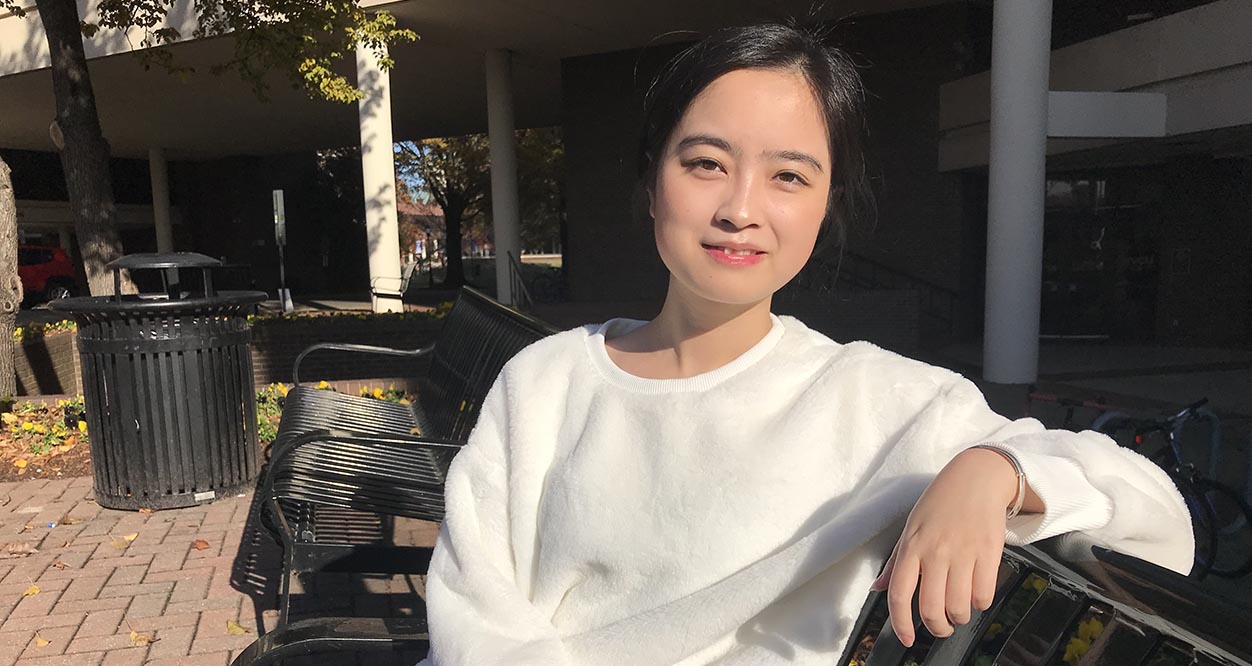VCU SOE strengthening ties with universities in China
The school has entered into agreements with seven institutions and expects to expand by three more in 2020.
By Brian McNeill, University Public Affairs, 804-827-0889, bwmcneill@vcu.edu
Tuesday, December 10, 2019

When Lindai Xie traveled from her home in China to begin taking classes at the VCU School of Education this fall, she worried that she wasn’t as proficient in English as she would need to be to succeed.
But Xie, who is in the master’s degree counselor education program to train to be a higher education counselor, found her classmates and professors to be supportive and invested in helping her thrive.
“They provide me with encouragement and positive feedback and help me,” she said. “The other students [are also training to be] counselors, so I’m in the perfect program.”
Xie is among the first students to enroll at the School of Education under a new initiative to strengthen ties between the school and Chinese colleges and universities. The School of Education has so far signed agreements with seven universities in mainland China and plans to expand to three more in 2020.
The partnerships aim to increase international student enrollment in the School of Education’s academic degree programs, strengthen faculty research and teaching exchange and collaboration, and promote cross-cultural awareness through short-term educational and cultural programs.
“The big-picture objective is to increase VCU's visibility and to enhance cultural diversity of the VCU School of Education community,” said Yaoying Xu, Ph.D., a professor in the Department of Counseling and Special Education.
Xu is director of the School of Education’s newly established Asian-American Educational Studies Center, a collaborative opportunity for faculty and students at VCU and in China to work and learn together in the areas of research, teaching, service and professional development. The center will eventually expand to other Asian countries, as well as support the Asian American community locally and regionally.
“As the director of the center, I believe that education is beyond borders, and education is for all,” Xu said. “The center's mission is to provide a variety of educational and cultural opportunities for scholars, educators and students from Asia and the U.S. to explore foundational and culturally meaningful topics in education and related fields.”
In late October, a delegation of 21 people representing VCU and Virginia traveled to China to hold a cross-cultural conference with partner institution Jiangnan University in Wuxi, China. The delegation included VCU faculty and students, VCU Provost Gail Hackett, Ph.D., a representative of the VCU Global Education Office, and Virginia Superintendent of Public Instruction James Lane, Ed.D.
The conference featured roughly 200 scholars and researchers from nine universities, as well as teachers from Wuxi public schools. It also featured 40 scholarly presentations and seven keynote speeches, including talks by VCU School of Education Dean Andrew P. Daire, Ph.D., Lane and Xu.
The trip and conference were part of the School of Education’s efforts to bolster its ties with Chinese schools, recognizing that education as a field is increasingly globalized while education as a profession increasingly requires cultural competency and sensitivity.
“The School of Education has the advantage to serve as the frontier to explore opportunities across borders … because education as a fundamental belief is valued by all cultures,” Xu said.
The school’s partnerships in China distinguish VCU from many of its peer institutions, she said. Specifically, VCU provides support to faculty and students from both sides through ongoing visiting scholars and exchange student programs. The school views education as the core and culture as the context, so VCU’s programs, short term and long term, focus on culturally responsive education. Additionally, the school is establishing an ongoing support system through peer mentors and faculty advisers to ensure the success of international students throughout their relevant academic programs.
“I’m so impressed that VCU has these partnerships with Chinese institutions,” Xie said. “It’s a really brilliant decision because it benefits both VCU and the Chinese institutions. The Chinese university can provide, or introduce, more options for graduate students, and for VCU they can improve diversity on campus. … In the future, teachers and the counselors will [work with] more international students and they will benefit from having a multicultural perspective.”